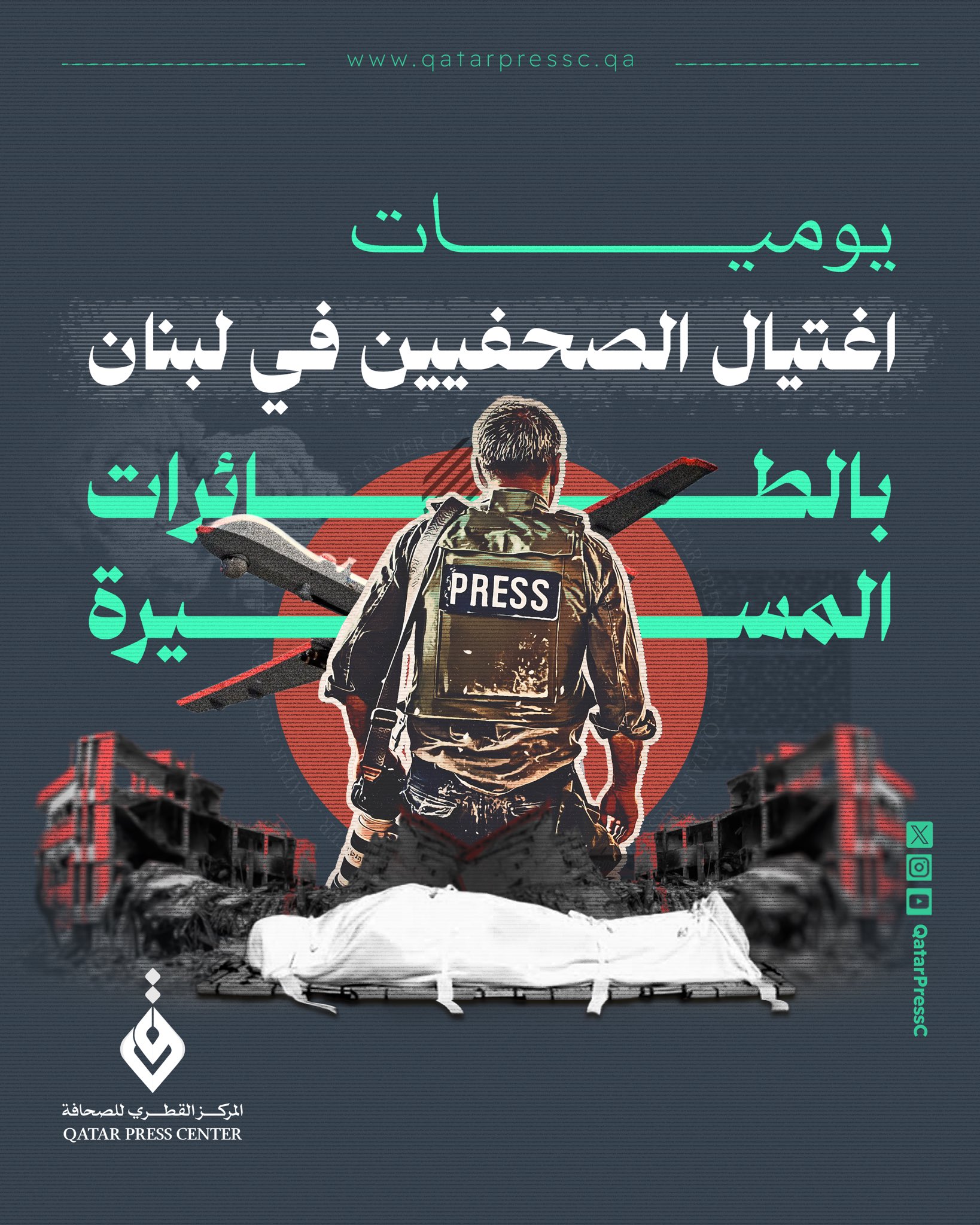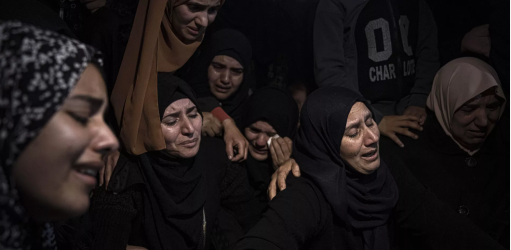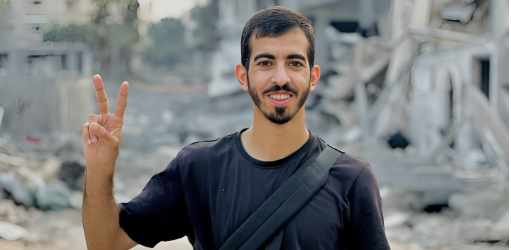This is a notification message.

A report by the National News Agency in Lebanon confirmed that the year 2024 is an exceptional year for the Lebanese media, and especially for the correspondents and photojournalists who put their helmets on their heads, wore their shields, and enlisted themselves to convey the truth, news and images, with courage in the most difficult and harshest aggression launched by the Israeli enemy on Lebanon with drone missiles since last September, until late November of 2024.
Caretaker Minister of Information Ziad Al-Makary said: The media body in Lebanon acted with great professionalism during its coverage of the war, despite the limited capabilities they had, and despite the brutality committed by the Israeli army against journalists, and against Lebanon in general.
He added: Israel continues to persecute and kill journalists, whether in Gaza or Lebanon, and has not and will not abide by any international agreement or treaty that protects and imposes the protection of journalists. He stressed that journalists are being martyred every day in Gaza, and despite Israel's admission of killing journalist Shireen Abu Akleh, nothing has happened, calling on the global conscience to move, expose this criminality, and raise the voice to prevent Israel from killing the truth. Victims of aggression The report explained that male and female correspondents faced danger, were psychologically and physically exhausted, and lost colleagues during the Israeli aggression on Lebanon, which directly targeted dozens of journalists, when Israel disregarded all legal and international treaties and agreements that stipulate the protection and respect of civilian journalists working on professional missions in areas of armed conflict, as stated in Article 34 of International Humanitarian Law, or the International Convention on the Safety of Journalists and Media Professionals.
The report cited the names of journalists and media workers who were lost during the war, such as photographer Issam Abdullah, Farah Omar, Ghassan Najjar, Rabie Al-Maamari, Hussein Aqil, Wissam Qassem, Mohammed Reda, Hadi Al-Sayed, and Ali Ashour, who were killed while performing their professional duties. The expansion of the war Lebanese journalists pointed out in the report that “journalists are part of the civil system, but with the expansion of the war, all of Lebanon has become included and targeted, including journalists.”
A journalist said: “The impact of the war on journalists was physical and psychological fatigue, perhaps more than the direct danger, even if they were not on the battlefield, in addition to following up on the affairs of the displaced and the fatigue that accompanies that, and trying to help them find safe places. He pointed out that what the society in Lebanon experienced during the war, the media experienced with an increase in exhaustion and fatigue.”
A Lebanese journalist added in the report: Media professionals and journalists pay a high price, whether because of their positions or the nature of their lives.
A journalist said: All journalists were taking into account the possibility of being injured or targeted by an enemy that is not prevented by any law or agreement from committing a criminal act against journalists. Another added: What made him more determined to cover, despite the danger of the place he was in and reporting from, was the martyrdom of his journalist friend, who was an incentive for him to complete the mission, stressing that the media had a major role in showing the extent of Israeli criminality in targeting civilians.

تستقبل نساء غزة يوم الأم...

تواصل الآلة الإعلامية الإسرائيلية حربها...